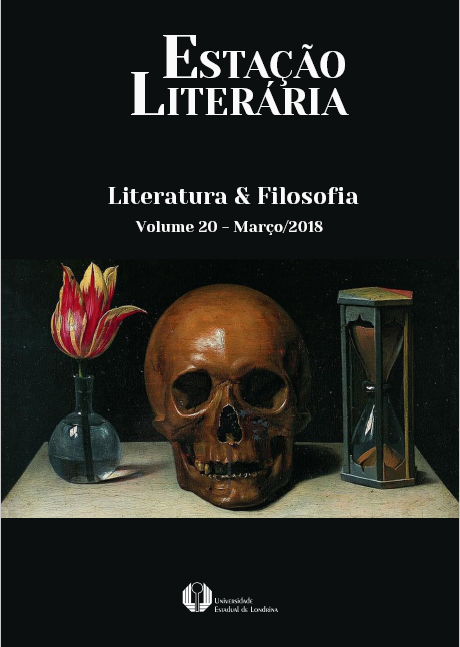Relations between the unusual and the comic in "The fable of belfagor the archedevil", by Niccolò Machiavelli
DOI:
https://doi.org/10.5433/el.2017v20.e31021Keywords:
Comic, Unusual, MachiavelliAbstract
The borders between the comic and the unusual are often unstable. In this paper, these tensions are exposed and explained from the analysis of the short story “The fable of Belfagor the archedevil”, by Niccolò Machiavelli. Published in the sixteenth century and inserted in the Renaissance period, it reflects in its essence the feeling of its time: the transition from a theocentric thought to an anthropocentric one. In order to represent this changing scenario, Machiavelli bets on using unusual/supernatural elements and characters to create humor in the short story and, consequently, criticize a society that was transiting between the medieval and the modern ages.Downloads
References
COMICIDADE. Dicionário informal online. 21 jul. 2017. Disponível em: http://www.dicionarioinformal.com.br/comicidade/. Acesso em: 21 jul. 2017.
DELUMEAU, Jean. História do medo no Ocidente 1300 – 1800. São Paulo: Companhia das Letras, 2001.
FREUD, Sigmund. Uma neurose infantil e outros trabalhos. Rio de Janeiro: Imago, 1974.(Edição Standard Brasileiras das Obras Completas de Sigmund Freud, v.17)
GARCÍA, Flavio. A banalização do insólito: questões de gênero literário - mecanismos de construção. Rio de Janeiro: Publicações Dialogarts, 2007.
GONÇALVES, Aline Pereira. Sem olhos nem nariz: um estudo sobre contos de Machado de Assis e N. Gogol. Darandina Revisteletrônica, v. 2, p.1-10, 2010.
LEMOS, Tércia Montenegro. O Humor e o Fantástico na Literatura (ensaio). Revista de Letras da Universidade Federal do Ceará, Fortaleza, v.16, n 1/2, jan./dez 1994.
MAQUIAVEL, Nicolau. Belfagor. In: II Principe e scritti minori. Milão: Ed. Hoepli, s.d. In: COSTA, Flávio Moreira da. Os 100 melhores contos de humor da literatura universal. Rio de Janeiro: Ediouro, 2001
MOURA, Aline de Almeida. A relativização da verdade: da Idade Média à Contemporaneidade. In: GARCÍA, Flavio. A banalização do insólito: questões de gênero literário - mecanismos de construção. Rio de Janeiro: Publicações Dialogarts, 2007. p. 95-115.
PROPP, Vladimir. Comicidade e riso. São Paulo: Ática: 1992.
SOETHE, P. A.. Sobre a sátira: contribuições da teoria literária alemã na década de 60. Fragmentos (Florianópolis), v. 25, p. 155-175, 2005.
TODOROV, Tzvetan. Introdução à literatura fantástica. São Paulo: Perspectiva, 2014.
Downloads
Published
How to Cite
Issue
Section
License
A revista se reserva os direitos autorais sobre as contribuições publicadas, sem retribuição material para o autor, podendo disponibilizá-las on-line no modo Open Access, mediante sistema próprio ou de outros bancos de dados; também poderá efetuar, nos originais, alterações de ordem normativa, ortográfica e gramatical, com o intuito de manter o padrão culto da língua, contando com a anuência final dos autores. As opiniões emitidas pelos autores são de sua exclusiva responsabilidade.












